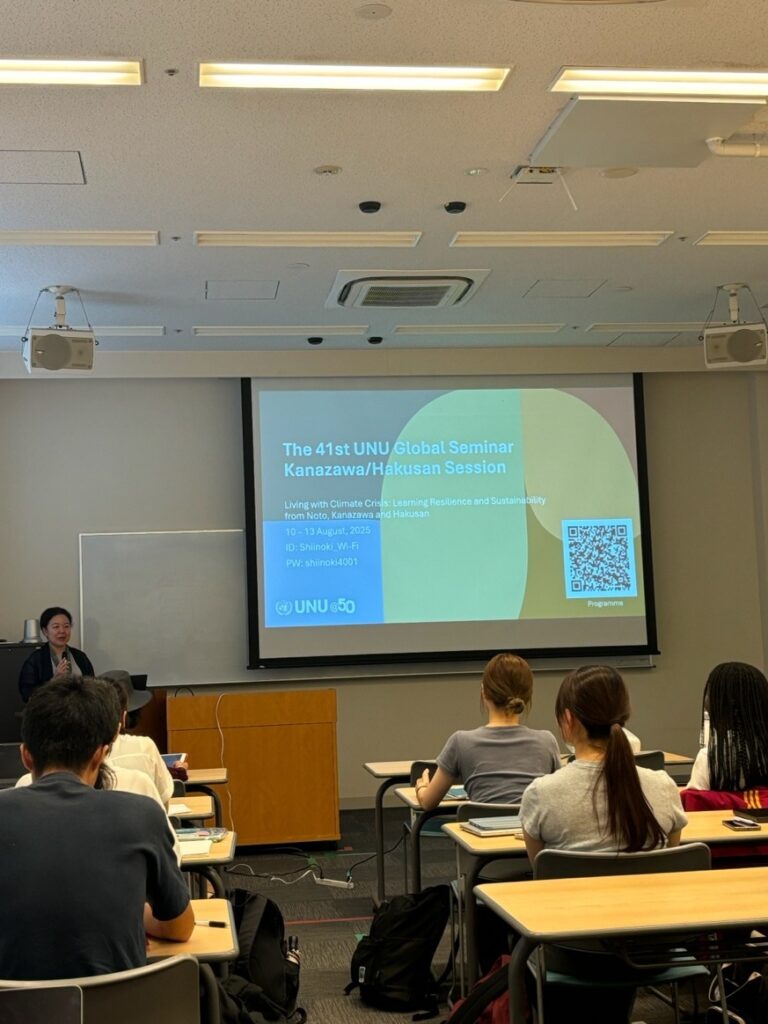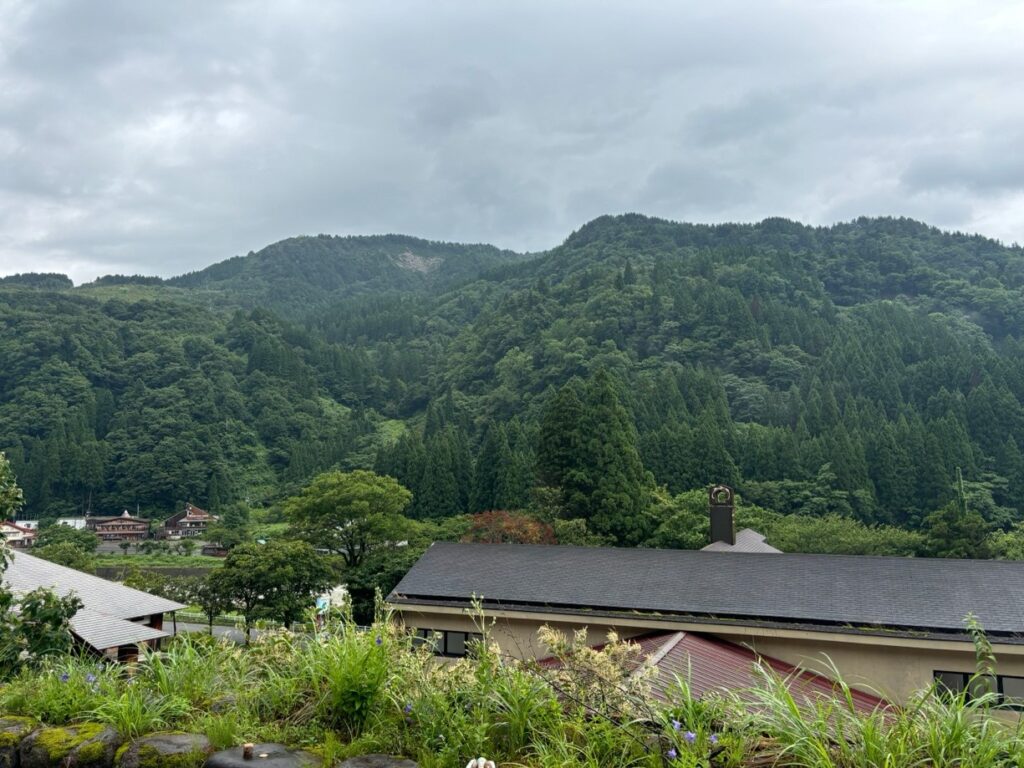Mr. Amanbaiuly Mukhtar, a 6th cohort NipCA fellow from Kazakhstan took part in the 41st United Nations Univeristy (UNU), Global Seminar Series “Living with the Climate Crisis” held in Ishikawa Prefecture from Sunday, August 10–Wednesday, August 13, 2025.
This seminar provided a timely and insightful platform for exploring sustainable development and disaster resilience in the face of escalating climate challenges. Hosted in the Ishikawa Prefecture of Japan, the seminar focused on lessons learned from the 2024 Noto Peninsula Earthquake and other torrential rain disasters, offering a powerful real-world case study for students and young professionals.
The seminar’s comprehensive program integrated lectures, field visits, and group work to provide a holistic understanding of the issues. Key themes included climate justice, biocultural diversity, and the relevance of traditional knowledge in modern society. Participants gained an in-depth understanding of how cities and nature are interconnected, particularly in the context of Kanazawa, known for its unique blend of urban culture and natural landscapes . The field trip to the Mount Hakusan UNESCO Biosphere Reserve and the Hakusan Tedorigawa UNESCO Global Geopark highlighted the importance of local resources and creative reconstruction efforts.
A central focus was on disaster resilience. Lecturers, including experts from the UNU- Institute for the Advanced Study of Sustainability (IAS) and affected areas of the Noto Peninsula, shared firsthand experiences of post-disaster recovery. The discussions underscored the critical role of community collaboration, sustainable resource management, and the integration of traditional wisdom in building more resilient societies. The seminar demonstrated that in the face of catastrophic events, a community’s capacity to adapt and innovate is as crucial as its infrastructure.
UNU seminars are exceptional for fostering a unique and enriching academic experience. They provide a multidisciplinary platform that brings together students, researchers, and experts from diverse backgrounds to address complex global challenges. By focusing on real-world issues, such as climate change and sustainable development, the seminars go beyond theoretical knowledge to offer practical, solution-oriented insights. The inclusion of field trips, group work, and direct engagement with local communities allows participants to gain firsthand experience and a deeper understanding of the topics. This comprehensive approach, combined with the opportunity to network with leading professionals and peers, makes UNU seminars a transformative learning experience that cultivates both intellectual growth and a global perspective





